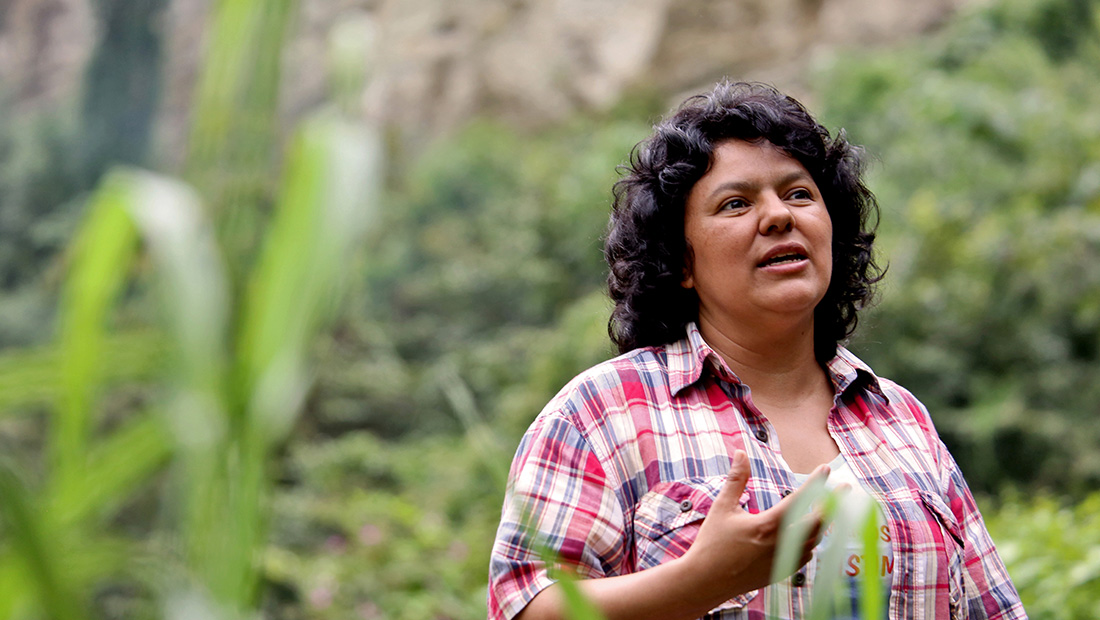Lea este artículo em español aquí. Article disponible en français ici.
(Geneva) – The UN Human Rights Council has adopted a landmark resolution on the protection of human rights defenders working to promote economic, social and cultural rights by a resounding vote.
The Norwegian-led resolution, developed in close consultation with civil society and sponsored by over 60 States from all regions, was adopted by a vote of 33 Member States of the Human Rights Council to just 6 against. Eight States in the 47-seat Council abstained.
Earlier, over 180 NGOs from all over the world united to call on Member States of the Council to adopt the resolution and reject a series of 30 hostile amendments proposed by Russia, China, Egypt, Cuba and Pakistan, designed to undermine the protection of defenders and to deny their legitimacy and very existence.
Resolution provides invaluable guidance to States and business on protection of defenders of economic, social and cultural rights
The resolution affirms the legitimate and essential role of human rights defenders in promoting, protecting and contributing to the realisation of economic, social and cultural rights – including indigenous rights and the right to development – and condemns restrictions and attacks against them by both States and business enterprises. It also underscores the fact that exercise of the rights to freedom of expression, association, assembly and public participation can be essential to the promotion, protection and realisation of ESC rights, and that restrictions or violations of these democratic rights may lead and amount to violations of the ESC rights for which defenders are advocating.
The resolution also provides invaluable guidance to States and business as to obligations and good practices in the protection of defenders. For States, such obligations and good practices include developing specific human rights defender protection laws and mechanisms, investigating and ensuring accountability for attacks and reprisals against them, and facililtating access to information and participation in policy and decision-making processes. For businesses, the resolution reinforces the obligation to respect and not interfere with the work of defenders, and to consult closely with defenders to identify, avoid, mitigate and remedy human rights risks and violations associated with business activities and development projects.
‘ISHR welcomes the adoption of this landmark resolution on the protection of defenders of economic, social and cultural rights,’ said ISHR’s Human Rights Council Advocacy Director, Michael Ineichen.
Norwegian leadership and support for civil society welcomed
‘We particularly recognise the principled leadership of Norway in leading the development of this timely resolution,’ Mr Ineichen said.
We also welcome the strong support for its adoption shown by States from all regions, including Argentina, Australia, Botswana, Cote d’Ivoire, Germany, Georgia, Ghana, Ireland, Korea, Latvia, Mexico, Morocco, the Netherlands, Panama, Paraguay, Peru, the Philippines, Slovenia, Switzerland, Tunisia, the United Kingdom, the United States, Uruguay and many others. We call on these States to now translate this principled support in the Council into effective protection for human rights defenders on the ground.’
Vexatious efforts by small group of States to undermine defenders defeated
The adoption of the resolution came after concerted efforts to destroy the text by a small group of States led by Russia, China, Egypt, Cuba and Pakistan. The 30 amendments proposed by these States, all of which were rejected by vote, included efforts to remove any reference to the term ‘human rights defenders’; deny the legitimacy of the work of defenders; weaken protections against intimidation and reprisals; and even refuse to condemn the assassination of human rights defenders, such as murdered indigenous rights defender Berta Caceres.
ISHR regrets that a number of the vexatious amendments were supported by States including Ecuador, Indonesia and India, while welcoming that each of these States ultimately voted in favour of the resolution once the amendments were defeated.
‘The systematic but ultimately unsuccessful efforts by a small group of States to undermine the human rights defender resolution paradoxically demonstrate the vital importance and potential impact of this resolution,’ said ISHR Director Phil Lynch.
‘The countries sponsoring the hostile amendments are among the most dangerous places in the world to work peacefully for the promotion and protection of human rights. China, for example, has arbitrarily detained or disappeared more than 300 journalists, lawyers and human rights defenders since July 2015, while Egypt is moving rapidly to shut down the remaining credible, independent human rights organisations in the country. ‘ Mr Lynch said.
‘ISHR deeply regrets that a small number of States, either directly by voting ‘no’ on the resolution, or implicitly by abstaining from the resolution, have signalled their lack of support for human rights defenders, to commit to their protection, or to condemn illegal and murderous attacks against them,’ Mr Lynch said.
States to vote ‘No’ on the resolution were Burundi, China, Cuba, Nigeria, Russia and Venezuela.
States to ‘Abstain’ on the resolution were Bolivia, El Salvador, Kenya, Namibia, Qatar, Saudi Arabia, the United Arab Emirates, and Viet Nam.
Vital next step is implementation
‘If States support the protection and realisation of economic, social and cultural rights and the right to development for all, including the most disadvantaged and vulnerable, they should equally support the protection of human rights defenders who work tirelessly and courageously to achieve these rights,’ Mr Ineichen said.
ISHR calls on all governments to take immediate and concrete steps to implement the landmark resolution at the national level.




